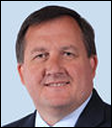Readers Write: What Do Recent Legislative Changes Really Mean to Physicians?
What Do Recent Legislative Changes Really Mean to Physicians?
By Vicki Miller

At a recent appointment for my 90 year-old mother, her physician, charting on paper, said to me, “I met Meaningful Use and thankfully SGR reform eliminated the annual cuts to our fees.” Realizing he had not had the pleasure of reading all the various recent legislation, I resisted engaging in a discussion about the potential impact the Medicare Access and CHIP Reauthorization Act (MACRA) and proposed modified Stage 2 and Stage 3 Meaningful Use rules could have on his practice.
While MACRA may have eliminated the potential annual cuts to Medicare, it has not stopped the movement to value-driven reimbursement or the requirements to demonstrate MU of EHRs and successfully report quality measures (PQRS). In fact, the proposed new legislation places greater emphasis on the use of technology to support care delivery activities and communication by tying 25 percent of the payment to MU of EHR technology. The charts below show the progression of the stages of MU required not only for MU but also to meet new payment model requirements under MACRA. You can download them as a PDF here.



What Does This Mean to Physician Practices?
* Sustained adoption of EHR and PM systems will play an increasingly important role. Today’s EHR and PM systems are expected to evolve to meet the changing requirements of the legislation. These systems will become more than the place to record the visit and generate a bill. They will become the “hub” for data collection and exchange. They will provide the secure framework to facilitate communication between physician, caregivers, patients, and their families. Practices should continually evaluate their workflows to ensure the technology and processes are integrated, streamlined, and standardized.
* Ability to seamlessly exchange, digest, and utilize clinically relevant data is essential. Electronic sharing of data between providers will be the expectation for coordination of care, engagement of patients and their families, and population health management. New technologies will expand this sharing of data to include non-clinical settings and patient self-reported data. Practices should consider whether existing processes need to be changed or new processes are required to capitalize on these data-sharing capabilities. With the right processes, data sharing has the potential to significantly improve efficiency and effectiveness of the practice.
* Availability of quality and cost data will influence selection of providers. The cost and quality rankings of physicians determined under new payment models will be now be publically available. Patients and referring providers may access this information to make decisions when selecting physicians. Payers may utilize this information to negotiate contracts and/or set physician-specific co-payment and deductibles based on the physician’s rankings. Practices will need to monitor and understand how physician cost and quality compare to peers to manage the potential financial and reputation implications to the physician and practice.
* Business Intelligence capabilities will be critical to sustained profitability and growth. The shift to value-driven reimbursement will require both management of the health of the patient and a deeper understanding of the business of the practice. Practices will need information to understand how resource utilization impacts profitability, know what services optimize revenue, and determine what quality-drivers produce the best outcomes. This requires analytics tools typically not available in today’s EHR and PM systems, and practice leaders educated in using information to drive decisions. Practices should develop a practice performance analytics plan to ensure the right tools, data, and training is in place to support data-driven decisions.
Yes, my mother’s physician was right. The annual stress of wondering whether a cut to the Medicare fee schedule is going to happen or not has been averted. And, we now have a better idea of what payments will look like in the future. However, practices are just beginning to understand payment adjustment impact under today’s PQRS, MU, and value-based payment programs. The passage of MACRA is not a call for business as usual but an acceleration of the transition of physician payments away from fee-for-service. Those practices that understand and react to the four areas outlined above will be better positioned to meet the challenges of the unprecedented changes facing practices today and in the future.
Vicki Miller is principal consultant and co-founder of Palm Key Associates.
Contacts
Jennifer, Mr. H, Lorre, Dr. Jayne, Dr. Gregg, Lt. Dan
More news: HIStalk, HIStalk Connect.
Get HIStalk Practice updates.
Contact us online.



































The article about Pediatric Associates in CA has a nugget with a potentially outsized impact: the implication that VFC vaccines…